AMD's batch of CES announcements this year includes just two new products for desktop PC users: the new Ryzen 9 9950X3D and 9900X3D. Both will be available at some point in the first quarter of 2025.
Both processors include additional CPU cores compared to the 9800X3D that launched in November. The 9900X3D includes 12 Zen 5 CPU cores with a maximum clock speed of 5.5 GHz, and the 9950X3D includes 16 cores with a maximum clock speed of 5.7 GHz. Both include 64MB of extra L3 cache compared to the regular 9900X and 9950X, for a total cache of 144MB and 140MB, respectively; games in particular tend to benefit disproportionately from this extra cache memory.
But the 9950X3D and 9900X3D aren't being targeted at people who build PCs primarily to game—the company says their game performance is usually within 1 percent of the 9800X3D. These processors are for people who want peak game performance when they're playing something but also need lots of CPU cores for chewing on CPU-heavy workloads during the workday.
AMD estimates that the Ryzen 9 9950X3D is about 8 percent faster than the 7950X3D when playing games and about 13 percent faster in professional content creation apps. These modest gains are more or less in line with the small performance bump we've seen in other Ryzen 9000-series desktop CPUs.
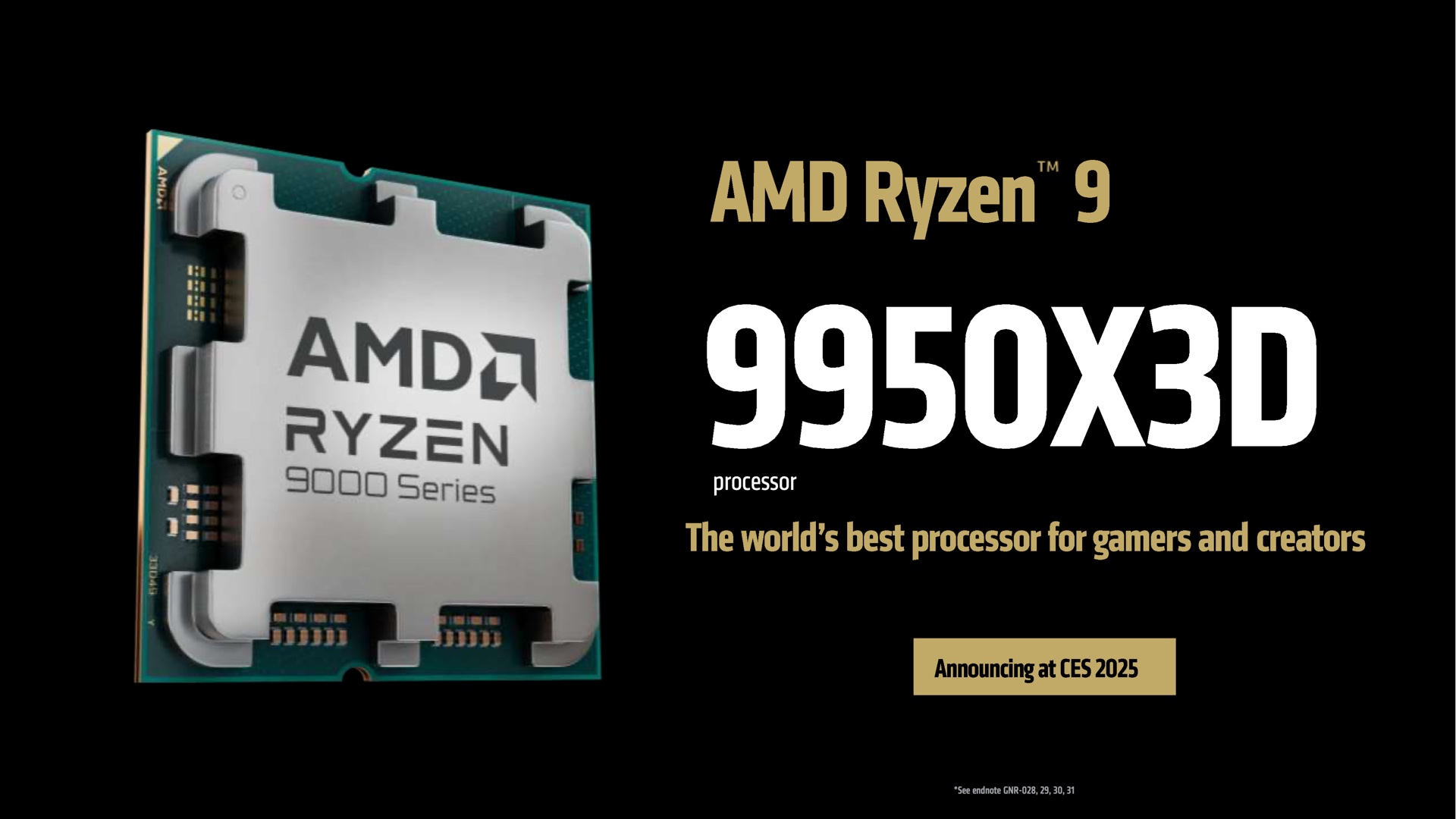
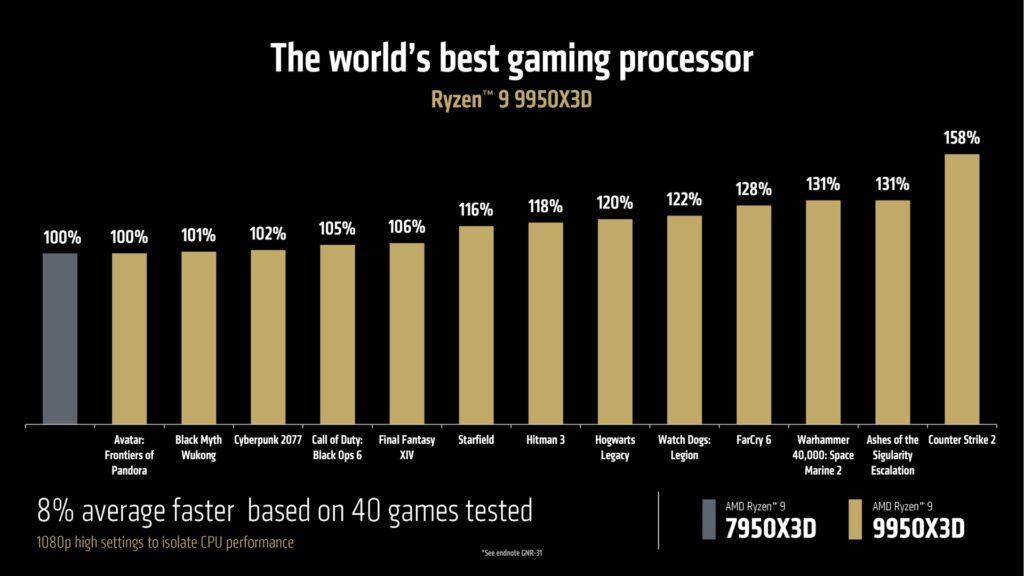
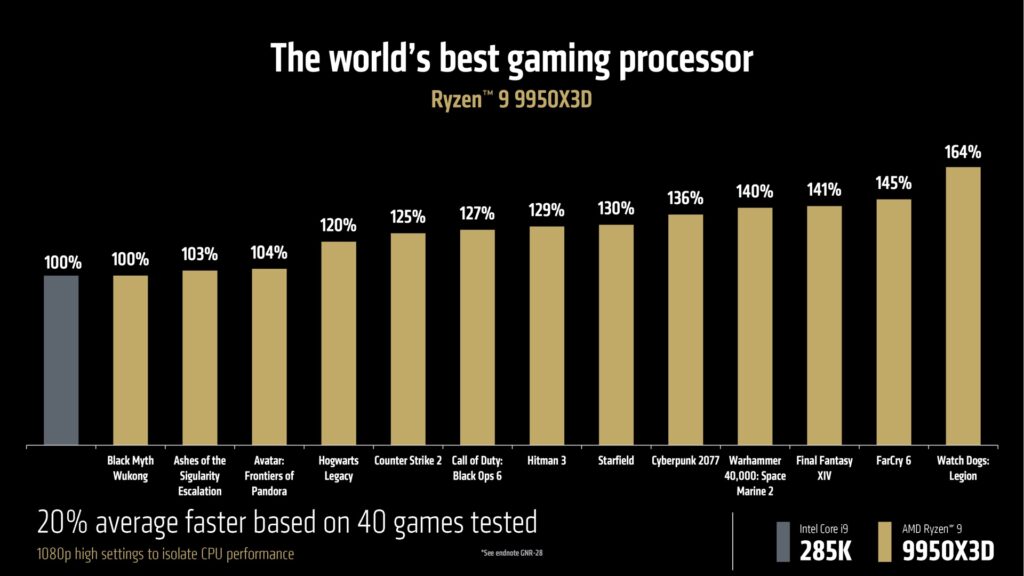
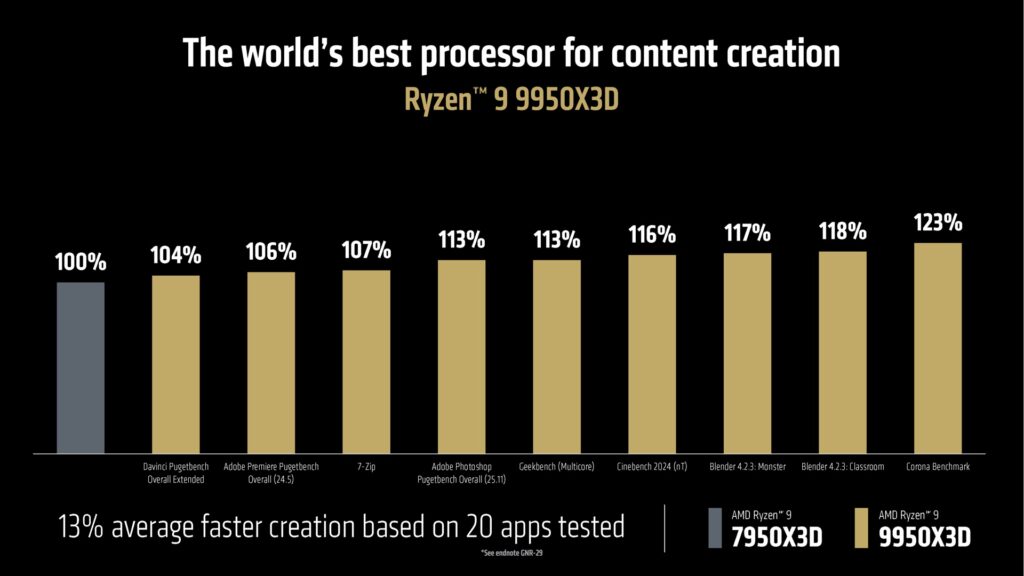
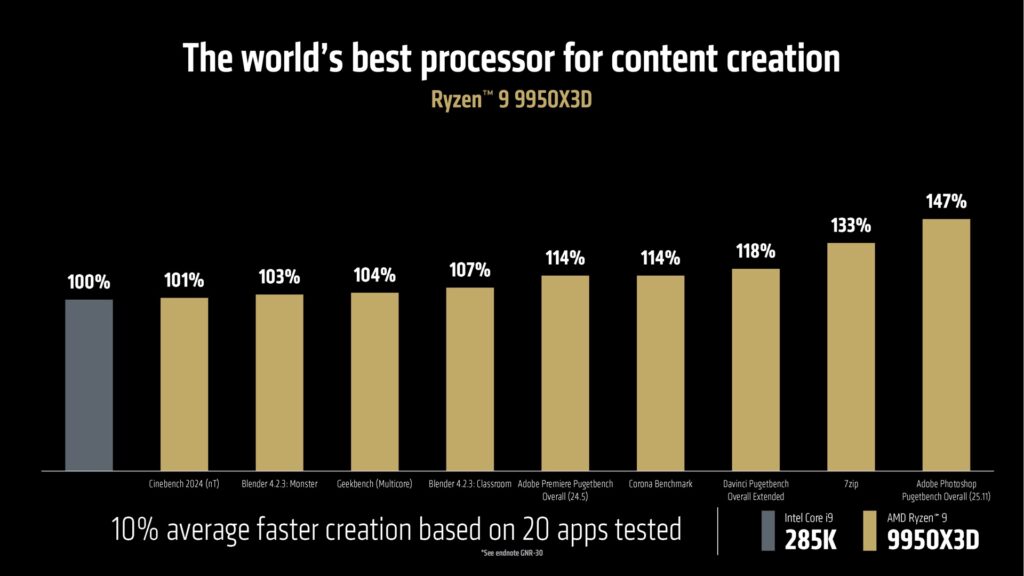
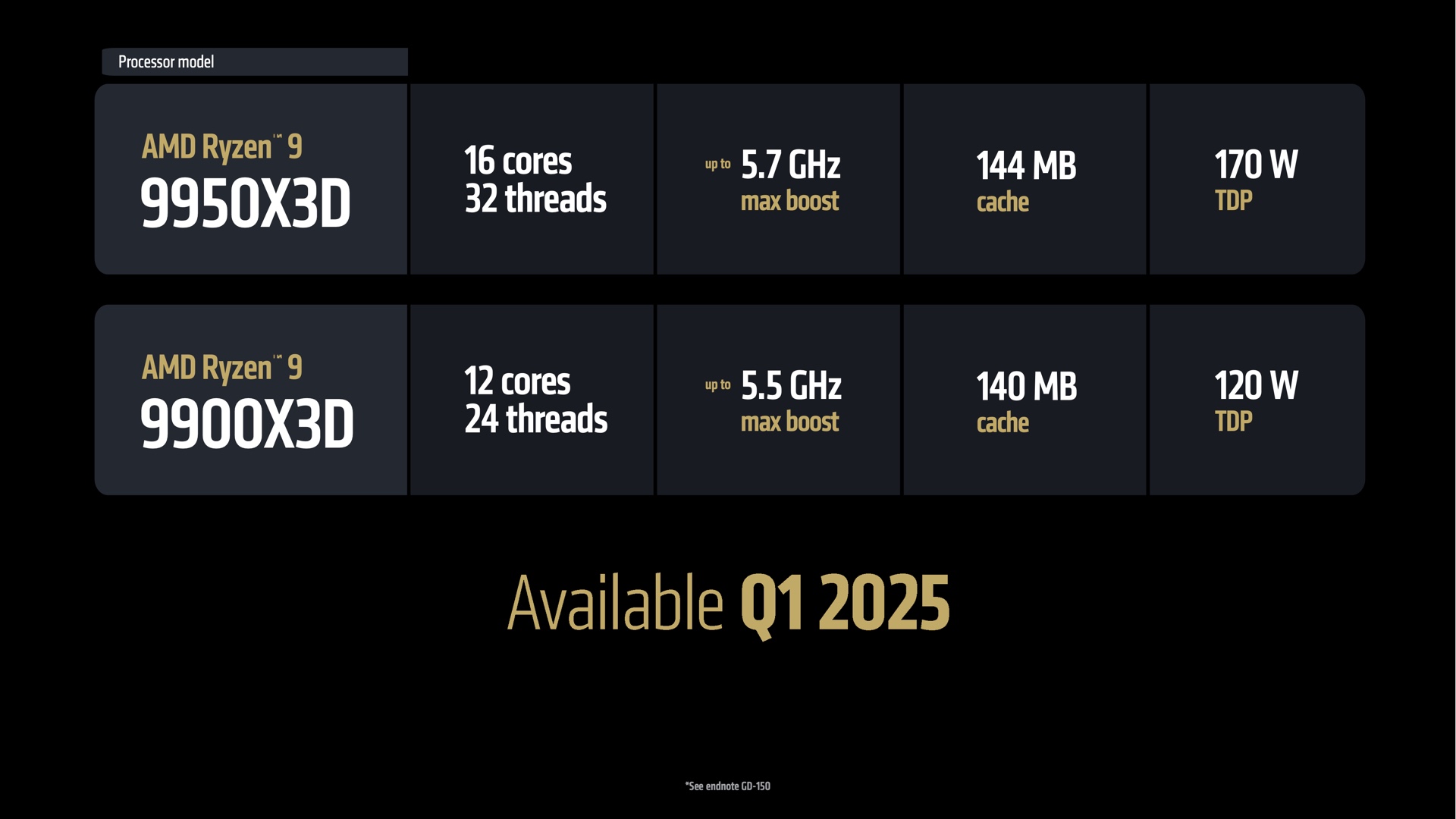

 Loading comments...
Loading comments...
